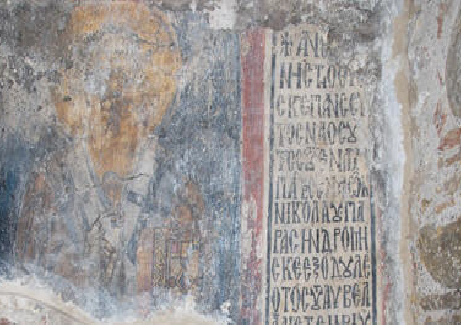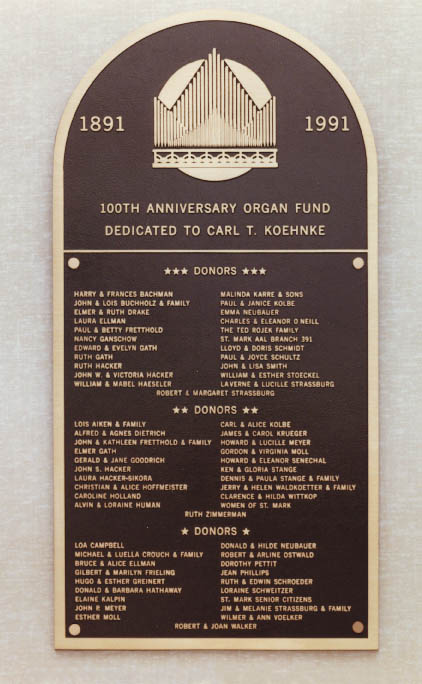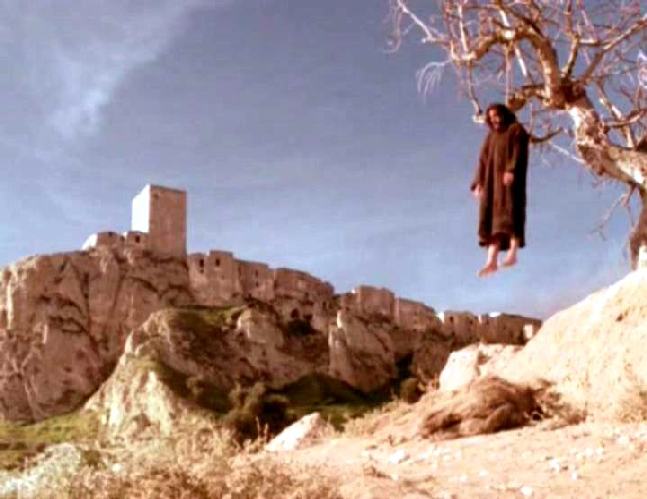|
Those who read the Scriptures of the Church
in a casual manner – in their struggle to find mistakes – now 'toss
their hats in the air', overjoyed that they have (supposedly) discovered
two, differing narratives regarding Judas’ death.
This makes them believe they have finally found reasons to debunk the
Bible’s texts.
But as usual, they have overlooked details...
The two “conflicting narratives”
The two passages in question are found in Matthew and in the Acts of the
Apostles. Let's take a look at both of them, and then comment in more
detail on these seemingly different narrations. We will see them both in
the ancient text and in a rendition, for an easier understanding of the
present analysis:
The first passage:
Matthew 27: 3-10:
Then Judas, His betrayer, upon seeing that He had been condemned,
repented and returned the thirty pieces of silver to the head priests
and elders, saying, “I sinned, by
surrendering innocent blood.”
Ôhey
said, “What is that to us? You see to it!”
(=it’s
YOUR problem!)
Then, throwing down the pieces of silver
in the temple, he departed, and having gone, he hanged himself.
But the head priests, on taking the pieces of silver, said, “It is not appropriate to put
them into the treasury, for it is the price of blood.” And
having consulted together, they
themselves
purchased the potter’s field for the burial of strangers; it
is for this, that it was named “Field of Blood” to this day.
Then were fulfilled the words of Jeremiah the prophet, who had said, “And
they took the thirty pieces of silver, the price of the priced One, whom
they of the children of Israel had priced, and
they gave
them for the potter’s field – the way that the Lord had informed me.”
Rendered by the Bible "critic", Sp.F.:
Then Judas, who had betrayed Him, seeing that he was condemned, returned
to the elders with the 30 pieces of silver, saying, I have sinned,
because I have shed innocent blood. And they said: And to us, what? It
concerns you. And throwing the pieces of silver into the temple, he
departed; and leaving, he was hanged. And the priests took the pieces of
silver, and said, It is not lawful to put them into the treasury: for it
is a price of blood. And when they had made a council, they purchased
the field of the potter, so that the strangers might be buried there.
Therefore that field was called the Field of Blood up to this day. Then
was fulfilled that which was spoken by Jeremiah the prophet, saying, And
they took the 30 pieces of silver, which was valued by the children of
Israel: And they gave them towards the potter's field''.
The second passage is the following:
Acts 1: 18-20:
“Now
this man
acquired
a field out of the wages of injustice; and having fallen prone
(=face
down),
he burst open in the middle and all of his entrails spilled out. And
it became known to all those dwelling in Jerusalem, so that field is
called in their own language, Akeldama, that is, ‘field of blood’. For
it is written in the Book of Psalms:
‘May
his homestead become desolate,
and may there be none who will live in it, and may another
take his estate”
Rendered by the Bible "critic", Sp.F.:
So, he got a field from the wages of injustice, and after
falling on his face he was torn in half, and all his entrails were
poured out. And it became known to all who lived in Jerusalem, so that
this field was named in their dialect ‘Akeldama’; that is, ‘field of
blood’. For it is written in the book of Psalms, Let his habitation
become desolate, and let no man dwell therein: and let another take his
estate”.
The supposed contradictions
In the above two passages, the 'critic' of the Bible has supposedly
identified the following two differences, which – according to his
biased opinion – also contradict each other:
1. Matthew tells us that Judas 'hanged himself’, whereas Luke in Acts
writes that 'he fell and was torn apart and his entrails spilled out'.
(According to the accuser, these two Evangelists give us a different way
that Judas died.)
2. Matthew tells us that the potter’s field was purchased by the priests
with Judas’ money, whereas Luke tells us that the field was purchased by
Judas – an absolute impossibility, given that Judas - according to
Matthew - had already hanged himself.
The observant and unprejudiced reader has already discerned the answers.
But we will analyze them further along, in response to those who read
the Bible carelessly.
So, exactly how did Judas die?
First of all, after studying the
first
supposed contradiction regarding the manner of Judas' death,
it is evident that the pseudo-accuser who strives to find contradictions
is IMAGINING certain facts, which the Evangelists had NOT written!
He has assumed that the Evangelists had given the reason for
Judas' death. But a careful reading of the text shows that neither
Matthew nor Luke wrote anything that specifies the reason Judas died.
They mention certain events, but they DO NOT clarify whether Judas's
death was linked to those events!
The one Evangelist informs us that Judas ‘hanged himself’, whereas the
other Evangelist informs us that Judas 'fell on his face and all his
entrails spilled out'. Well, let's think about this: Is it possible, if
someone simply falls down, for his belly to be torn open and all his
entrails be scattered around? Does
anyone know of a case, where someone has suffered such results after a
simple fall? Of course not! For
a result so extreme to happen, the one who fell MUST HAVE FALLEN FROM A
VERY HIGH PLACE!
And here, we come to the significant point.
In Acts, where Luke speaks of Judas’ fall, he was clearly indicating
that Judas did NOT merely trip over, but had actually fallen from a
great height!
He had
obviously dropped from a higher up branch of the tree he had chosen to
hang himself from.
Thus, the one Evangelist had described Judas’ act of hanging, while the
other Evangelist had highlighted the detail of Judas’ horrific death,
after his fall from the tree.
Luke’s words ELABORATED the outcome of Judas’ suicidal act – the result
of which not only doesn’t contradict the other excerpt; in fact, it
CONFIRMS Matthew’s words, that Judas had hanged himself from a very high
spot!
(A quaint, old oral tradition adds that the tree was so
disgusted with Judas' treason, that it purposely made its branch break
off, in order to rid itself of the traitor...)
The purchase of the Potter’s Field
Finally, let us look at the second supposed contradiction. The 'critic'
of the Bible asserts that:
“The one Evangelist says that Judas hanged himself, and that the field
was purchased by the priests. The other Evangelist, however, says that
Judas purchased a field. This must surely be a contradiction”.
Once again, people like him tend to insert things in the text of the
Bible which the Bible itself does NOT actually say! Nowhere does the
text say that Judas himself 'purchased' a field. It says: 'ACQUIRED'.
The original (Greek) text is very clear; it says: 'acquired'. If someone
has an acquisition, it does NOT necessarily imply that it was purchased
by that person himself; it could very well have been purchased by
someone else, for them!
Here too, the one Evangelist not only does not contradict, but confirms
the other!
Matthew says very clearly that: “But the head priests
– on taking the pieces of silver - said, ‘It is not appropriate to put
them into the treasury, for it is the price of blood’. And
after having consulted together, they purchased the potter’s field, for
the burial of strangers”.
He says very clearly, that NONE OF THEM kept Judas' money; NONE OF THEM
purchased something for himself with that money. THEY DIDN'T EVEN GIVE
IT TO THE TEMPLE,
because it was blood money.
Ergo, the field that was
purchased did not actually belong to any of the Priests - not even to
the Temple! This field was
handed over for PUBLIC USE, for the burial of strangers!
Since it did not belong to any priest or the temple, then who did that
field belong to, if not to the possessor of the 30 silver coins of the
betrayal – that is, Judas?
Thus Matthew confirms Luke, who mentions Judas as the 'owner' of the
field!
Here, of course, one might also comment: How could Judas have
"acquired" the field if he was dead?
To answer those who pose this question: they are obviously not focused
on the meaning of the term “acquisition”. The owner of a
property is NOT necessarily the one who enacted the purchase -
it is the one whose money was used for that purchase!
We need only to bring to mind a very familiar example, in confirmation
of this statement:
Among the various prayers that are offerred by the Church are the
commemorations of (reposed) persons
who had GIVEN-DONATED-BEQUEATHED
MONEY TO THE CHURCH for its needs during their lifetime. Albeit reposed, they are
nonetheless the "purchasers" of the ACQUISITION, given that
it was THEIR MONEY which had been used for it. This is the reason behind
every commemoration - and not only by the Church:

.bmp)

Commemorative acts can also be seen in places that
publicly acknowledge
who the (reposed)
benefactor
and/or donor of the acquisition was...

We believe the above analysis suffices as
proof that there are no conflicting points in the Holy Bible;
hopefully, it will also dispel all doubts in the minds of those who
intentionally seek faults in the holiest of writings.
Original article from
www.oodegr.com/oode/grafi/kd/ioyda_than1.htm
******************************
ON GREAT AND HOLY THURSDAY:
THE SEVEREST BETRAYAL IN HUMAN HISTORY

Ôhe
Troparion hymn :
«When the glorious disciples were being illuminated during the
ablution (washing) of the Supper, then the disrespectful Judas - sick
with greed – was darkened, and to lawless judges he surrendered You, the
rightful Judge!
Observe, o lover of moneys, the one who for their sake used the hanging
noose!
Avoid the unsatisfied soul, who dared such things against the Teacher!
Glory to You o Lord, Who are benevolent to all!
The person of Judas is central to the story of Christ's Passion.
The hymnography of the previous days of Holy Week were already focused
on the traitor disciple. The pertinent Troparion hymn focuses on this
subject even more so, because the betrayal was in sight on that day.
It was Holy Thursday. Christ had expressed His desire to be with his
disciples, to share the last (Jewish) Passover meal of His life, during
which He would be enacting the (soon to be) Sacrament of the Divine
Eucharist.
All the disciples had gathered in an upper room in Jerusalem, where they
had prepared for this Passover supper. Judas
was also among them.
However, during those crucial hours, while the eleven disciples were
being enlightened by the radiance of the divine Master and their minds
opened to Grace in order to recognize the unfolding of the salvific
Mystery before them, Judas had instead surrendered himself to the
darkness and remained emotionless before this miracle; his mind was
absent from the heavenly mystagogy. He chose to run far, far away – to
the very depths of Hades and the dreadful darkness of Hell. He had
become more attached to the enemies of Christ who had sought to
assassinate Him, and had even planned to hand over the Redeemer of the
world into their hands himself!
He had studied betrayal! What a horrific outcome for the
disciple-traitor!
The author of the Troparion draws our attention to this monster of a
man; “Take a look”, he says, “all you who love money – you, who restrict
your soul and your life to money, and do everything to obtain it, you
slaves to Mammon (=riches), you ruthless money-lovers – take a look at
the one who for the love of money found a horrible and disgraceful
death: he hung himself from
an inhospitable tree, which allowed him to fall so forcefully from its
branches, that his body burst open and his bloody entrails were
scattered around!”
“Avoid”, he cries out, “such an unsatisfied soul, which, for the love of
money dared to perpetrate the betrayal of the Master!”
The hymn writer closes with the following words:
“We, o Lord, who are speechless before the Mystery of Your divine
benevolence which embraces every person without exception – the good and
the bad – remain silent in the presence of the dark mystery of the
traitor who had exploited Your grace, and we cry out ‘Glory to You’!”
**************************************************
From the prayers of Holy Wednesday, making comparisons of the two
extremes:
When the sinner woman was offering the myrrh,
the disciple was agreeing with the lawless ones.
The one rejoiced when pouring out the costly item,
the
other hastened to sell the priceless One.
She was acknowledging the Master,
he was deserting the Master.
She was liberated, and Judas became the enemy’s slave.
A terrible thing is indolence,
A great thing is repentance!
Translation by A. N.
Greek Text |

